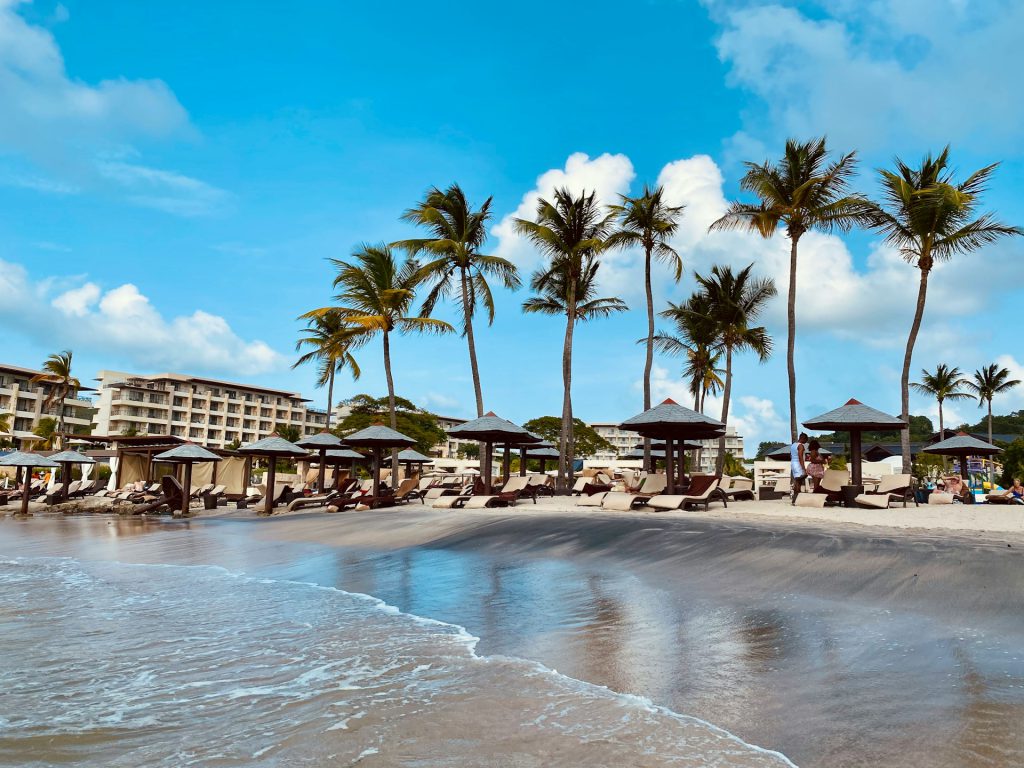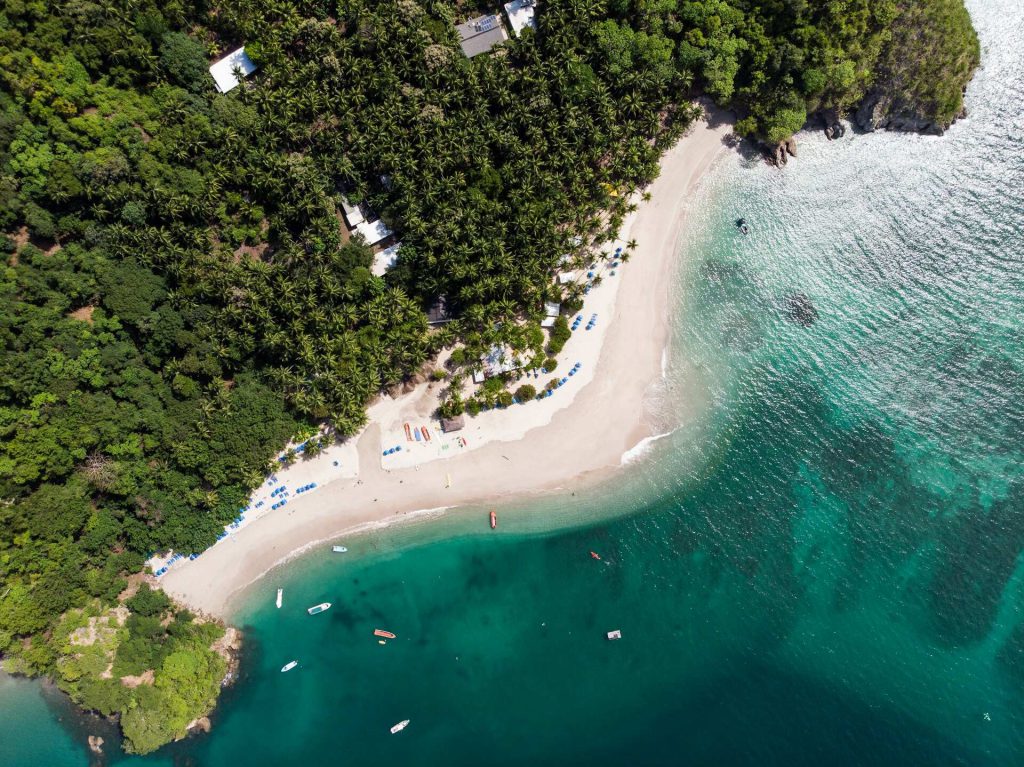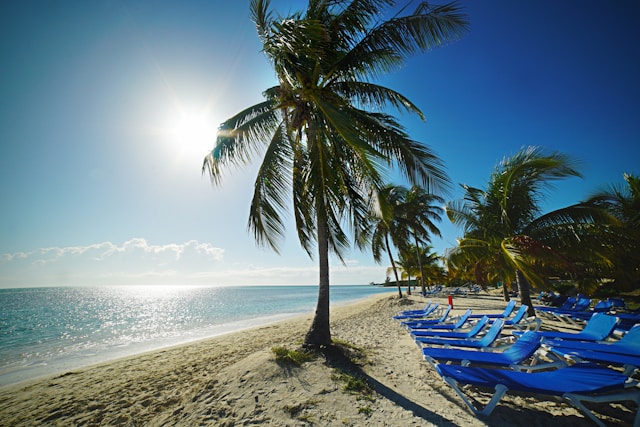Starting the journey of planning a trip requires striking a balance between desires and practicalities, beginning with listing dream locations and deciding on the type of adventure one seeks [1]. It’s essential to pick a destination considering various factors like season, cost, safety, and accessibility, which are critical in shaping the travel experience [6]. Equally important is identifying the travel budget and deciding who will join the adventure, as these decisions lay the foundation for a memorable journey [2][4].
The planning phase is more than just figuring out logistics; it’s about crafting an experience that resonates with personal aspirations and preferences. Once the destination, travel duration, and companions are set, the next steps involve delving into the finer details of trip planning, including creating a budget and itinerary that align seamlessly with one’s vision of the perfect getaway [3][5]. This guide aims to walk travelers through 40 must-do things for planning a trip, ensuring every aspect of travel, from travel insurance to picking the right travel credit card and using trip planner apps, is covered to make trip planning a breeze [1][2][3][4][5][6].
Confirm Travel Documents Are Up-to-Date
To ensure a smooth travel experience, confirming that all travel documents are up-to-date is a critical step in planning a trip. Here’s a concise checklist to guide you through this essential process:
- Passport and Visa Requirements:
- Verify your passport’s expiration date; it should be valid for at least six months beyond your planned return date to avoid any travel disruptions [3][9].
- Check the visa requirements of your destination by consulting the embassy or official government website. Application times can vary, so it’s advisable to do this early in your planning process [3][9].
- Health and Safety Documentation:
- Research the health advisories for your destination, including recommended vaccinations by the U.S. Centers for Disease Control (CDC) and World Health Organization (WHO) [9].
- Understand the legal status of any prescription medications you’re bringing, as some may be prohibited in your destination country. Ensure you have the necessary documentation if required [9].
- For trips during or post-pandemic periods, check for any requirements regarding proof of vaccination or negative COVID-19 test results. Keep these documents readily accessible [10].
- Additional Considerations:
- If traveling with minors without both parents, you may need notarized consent from the non-traveling parent(s) or legal guardians. This requirement can vary by destination, so checking with the respective embassy is crucial [9].
- Many countries do not recognize a U.S. driver’s license. If you plan to drive, obtaining an International Driving Permit (IDP) and understanding the local insurance requirements is essential [9].
- Enroll in the Smart Traveler Enrollment Program (STEP) at step.state.gov for travel and security updates and to facilitate emergency contact [9].
- Notify your bank and credit card companies of your travel dates to prevent any unexpected account freezes due to foreign transactions. Also, familiarize yourself with the exchange rates [9].
By adhering to this checklist, travelers can avoid common pitfalls and ensure that all necessary documents are in order well before departure. This proactive approach not only minimizes stress but also paves the way for a more enjoyable and hassle-free journey.
Create a Budget and Stick to It
Creating a comprehensive travel budget is paramount for a stress-free and enjoyable trip. Here’s a breakdown of the essential components to consider:
- Expenses Overview:
- Flights and Accommodations: Allocate funds for flights and places to stay. Research shows booking hotels further in advance generally results in higher prices, unlike flights which are usually cheaper when booked well in advance [13][17].
- Transportation: Factor in costs for local and intercity travel, including buses, trains, rental cars, or cruises. Being flexible with travel dates can lead to significant savings, especially during the offseason [13][1].
- Food and Activities: Estimate daily meal costs and set aside funds for attractions or activities. It’s advisable to budget a minimum of 2 to 2.5 times the price of your accommodation per night for one day’s worth of food [15].
- Budgeting Tips:
- Research and Save: Start by researching your costs thoroughly and begin saving accordingly. Look for discounts and deals on travel websites and consider getting a travel rewards credit card for additional savings [5][1].
- Emergency Fund: Always keep aside some money for unforeseen circumstances. This fund could cover medical emergencies, extra expenses, or even happy accidents [15].
- Cost-Saving Strategies:
- Accommodation: Booking a hotel room with free cancellation as soon as you see a deal and monitoring the price for any drops can lead to significant savings. Domestic hotels tend to be cheaper with Sunday check-ins, while for international hotels, Tuesday arrivals can be 4% cheaper than average [17][21].
- Travel Dates: Exploring off-season travel can lead to additional savings. For example, traveling to Europe in October and November or to the Caribbean in January can be less expensive [17].
- Last-Minute Deals: Though risky, last-minute bookings can save up to 58% for domestic hotels and up to 73% for international hotels compared to the average price. However, this approach might not be ideal if you’re set on staying in a specific hotel or visiting a destination likely to sell out [17][21].
Establishing a budget early on is crucial for making informed decisions about accommodations, activities, and transportation, ensuring you get maximum value for the money spent [7][15]. By adhering to these guidelines, travelers can plan better, enjoy a stress-free holiday, and avoid the pitfalls of overspending.
Research and Plan Your Itinerary
To embark on a meticulously planned journey, initiating with comprehensive research on the destination is crucial. This includes delving into attractions, food options, and transportation avenues to ensure a seamless experience [13]. Utilizing a plethora of resources such as Google, Pinterest, TripAdvisor, Yelp, and Google Reviews can provide a wealth of information, aiding in the creation of a robust travel plan [13].
- Itinerary Planning Steps:
- Gather Information: Use online platforms like Google and TripAdvisor to research attractions, dining, and local transportation [13].
- Map and Group: Create a map of desired locations and group activities by proximity. This helps in optimizing travel time and experiencing more [22].
- Book in Advance: Secure spots for popular tours, activities, and dining experiences to avoid missing out [13].
- Prepare Logistically: Arrange for pet care, book luggage storage if necessary, and ensure all travel documents such as visas and health insurances are in order [13].
- Flexible Itinerary: While having a detailed plan is beneficial, leaving room for spontaneity can enhance the travel experience by allowing for unexpected discoveries and relaxation [22].
Creating a day-by-day itinerary is pivotal. This involves identifying top sights, understanding local transportation systems, and scheduling activities with precision. Incorporating local insights and prioritizing must-see attractions based on personal preferences can significantly enhance the travel plan [3][8].
- Daily Planning:
- Day-by-Day Breakdown: Assign specific attractions and activities to each day, considering opening hours and location [3].
- Transportation: Research and plan how to navigate between points of interest, whether by bus, train, rental car, or walking [3].
- Flexibility: Ensure there’s room in the schedule for relaxation, impromptu adventures, or dealing with travel mishaps [14].
In conclusion, the essence of a successful trip lies in thorough research and meticulous planning, complemented by a balance between a structured itinerary and the freedom to explore spontaneously [23][7]. Utilizing digital tools and apps for itinerary management can streamline the planning process, ensuring all information is accessible in one place, whether through a digital app, a color-coded spreadsheet, or an old-school notebook [14]. This approach not only guarantees a well-organized trip but also opens avenues for unexpected joy and discoveries along the way.
Book Accommodations and Flights Early
When planning a trip, securing your flights and accommodations early is a critical step that can significantly impact the overall experience and budget. Here’s a structured approach to ensure you make the most of your bookings:
Flights
- Research Tools: Utilize platforms like Google Flights, FareDrop, Hopper, Scott’s Cheap Flights, and Skyscanner to track and book flights. These tools offer insights into price trends, allowing for informed decisions [13].
- Comparison and Timing: Compare prices across different airlines and consider booking your flights early. Planning ahead can help avoid last-minute stress and ensure availability, often leading to better deals [1][7].
- Booking Strategies: Consider booking refundable tickets when possible and keep monitoring flight prices even after booking. This can sometimes lead to savings if prices drop [6].
Accommodations
- Booking Platforms: For accommodations, popular platforms include Airbnb, Tripadvisor, and Booking.com. These sites offer a range of options from hotels to rental properties, catering to different preferences and budgets [13].
- Type of Stay:
- Location Considerations: When choosing your base, prioritize easy access to transportation, cafes, restaurants, and other essential services. This can enhance the overall travel experience by reducing transit times and offering convenience [24].
Additional Tips
- Last-Minute Deals: While it’s generally advisable to book early, staying focused and inspired allows you to check for last-minute deals that can occasionally lead to significant savings [5].
- Pre-Travel Preparations: Don’t forget to book airport parking if needed and update all necessary apps and software. This ensures a smooth start to your journey [12].
By following these guidelines and utilizing the recommended tools and platforms, travelers can streamline the booking process. This not only secures the best deals but also aligns with the overall travel plan, ensuring a memorable and stress-free experience.
Pack Smart and Prepare Your Home
Before embarking on your journey, smart packing and home preparation are crucial steps to ensure a smooth and worry-free trip. Here’s a comprehensive guide to help you pack efficiently and prepare your home:
Essential Packing Checklist
- Documents and Electronics:
- Clothing and Footwear (based on destination and activities):
- Toiletries and Health Items:
- Miscellaneous:
Home Preparation Checklist
- Security and Maintenance:
- Final Preparations:
Packing Tips for Optimizing Luggage Space
- Clothes: Opt for layering clothes in neutral colors and consider multi-use wraps and crushable hats for versatility and space-saving [22].
- Specialty Items: For specific trip types, pack accordingly—seasickness remedies for cruises [22], water shoes and towels for beach vacations [22], and appropriate formal wear and shoes [22].
- Efficiency: Use packing cubes or compression bags to organize and minimize the space clothes take up. Pack versatile clothing items that can be mixed and matched to reduce the number of outfits needed [7].
By following these guidelines, travelers can ensure they have all essential items packed without overloading their luggage. Additionally, taking the necessary steps to secure and prepare the home will provide peace of mind during the trip, allowing travelers to fully enjoy their adventure.
Conclusion
Throughout this comprehensive guide, we have navigated the essential steps and considerations for planning a fulfilling journey, emphasizing the significance of meticulous preparation, from selecting an ideal destination to packing smartly and preparing one’s home for departure. By highlighting critical areas such as confirming travel documents, devising a realistic budget, crafting a detailed itinerary, booking accommodations and flights early, and packing efficiently, this guide serves as a blueprint for travelers aiming to experience a smooth and memorable trip. The recommendations provided form the backbone of planning, ensuring every traveler is well-equipped to tackle the challenges of trip planning while maximizing enjoyment and minimizing stress.
The journey of planning a trip is as crucial as the trip itself, paving the way for a seamless and enriching travel experience. By adhering to the principles laid out in this guide, travelers gain not only the practical insights needed to navigate the logistics of trip planning but also the confidence to explore new destinations with ease and excitement. The reflection on these essential steps encourages travelers to approach trip planning with a thoughtful and proactive mindset, ultimately leading to a more enjoyable and fulfilling travel experience. As the world continues to open up its doors to explorers, this guide serves as a steadfast companion, ensuring that every journey embarked upon is not just a trip, but a well-crafted adventure.
FAQs
What Should You Consider When Planning a Trip?
When embarking on trip planning, there are five essential steps to consider:
- Choosing Your Destination: The initial step involves deciding where you want to go.
- Determining Trip Duration: Next, figure out how long your trip will be.
- Booking Flights and Accommodations: Secure your travel and stay arrangements.
- Exploring Local Activities and Attractions: Get ideas for what to do during your visit.
- Packing: Finally, prepare your luggage according to your needs and destination.
How Can You Best Plan Your Trip?
To effectively plan your trip, follow these guidelines:
- Prioritize Safety: Always keep safety in mind while traveling.
- Select Destination and Duration: Decide where and how long you’ll be traveling.
- Budget Wisely: Create a budget that reflects your financial reality.
- Book Accommodations: Research and reserve your stay.
- Look into Local Transport: Understand your transportation options.
- Draft a Flexible Schedule: Make an adaptable plan for your activities.
- Check Passport/Visa Needs: Ensure your travel documents are in order.
- Arrange for Travel Insurance: Protect yourself against unforeseen events.
What is a Crucial Aspect of Planning a Trip?
A vital aspect of trip planning is organizing your itinerary in a way that maximizes the impact and enjoyment of your experiences. Ensuring that you visit places in an order that enhances your trip is key.
What are Some Essential Do’s and Don’ts While Planning a Trip?
When planning a trip, keep these tips in mind:
- Do’s:
- Conduct thorough research.
- Prioritize your safety, especially in risky areas.
- Be open to exploring new destinations.
- Maintain a friendly attitude towards locals and fellow travelers.
- Don’ts:
- Avoid last-minute packing.
- Do not drink unsafe local water.
- Resist the effects of jet lag actively.
- Do not be easily swayed by aggressive sales tactics.
References
[1] – https://www.capitalone.com/learn-grow/more-than-money/how-to-plan-a-vacation/
[2] – https://tavernatravels.com/how-to-plan-a-trip-an-easy-travel-planning-guide/
[3] – https://www.linkedin.com/pulse/how-plan-trip-10-simple-steps-iqbal-uddin-abbasi
[4] – https://www.ramseysolutions.com/saving/5-steps-to-planning-memorable-vacation
[5] – https://www.nomadicmatt.com/travel-blogs/planning-a-trip/
[6] – https://traveltriangle.com/blog/how-to-plan-a-trip/
[7] – https://www.quora.com/What-strategies-do-experienced-travelers-use-to-make-planning-trips-hassle-free-and-fun
[8] – https://www.quora.com/What-are-some-essential-elements-of-a-successful-travel-plan-Can-you-provide-any-advice-for-improving-a-travel-plan
[9] – https://travel.state.gov/content/travel/en/international-travel/before-you-go/travelers-checklist.html
[10] – https://www.worldtrips.com/international-travel-documents-checklist
[11] – http://www.united.com/ual/en/us/fly/travel/documentation-requirements/international.html
[12] – https://gatherandgotravel.com/close-the-house-and-packing-checklist/
[13] – https://adventuresofaplusk.com/how-to-plan-a-trip/
[14] – https://xplorie.com/blog/5-tips-tricks-to-creating-a-perfect-travel-itinerary/
[15] – https://budgetbakers.com/create-realistic-travel-budget/
[16] – https://www.curiousgoosetravel.com/post/budgeting-for-full-time-travel
[17] – https://www.kayak.com/news/best-time-to-book-a-hotel/
[18] – https://thepointsguy.com/guide/best-hotel-bargain-strategies/
[19] – https://www.afar.com/magazine/best-time-to-book-a-hotel
[20] – https://www.cnbc.com/2022/05/18/exactly-when-to-book-a-hotel-to-get-the-best-deal.html
[21] – https://www.travelandleisure.com/best-time-to-book-hotels-7107450
[22] – https://wonderandsundry.com/how-to-keep-your-travel-itinerary-loose-and-have-an-incredible-vacation/
[23] – https://thewanderingblonde.com/2019/01/02/how-to-plan-a-trip/
[24] – https://observingleslie.com/magazine/trip-planning-tips-and-tricks-how-i-plan-my-travel












